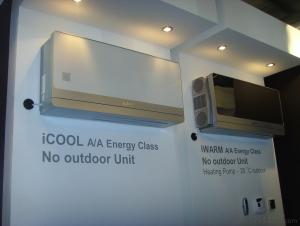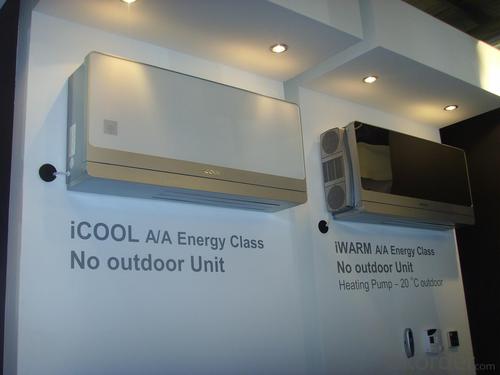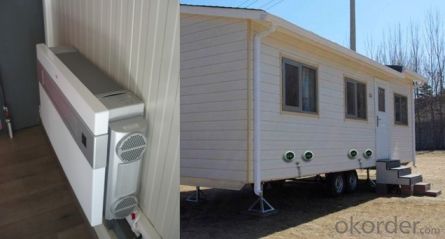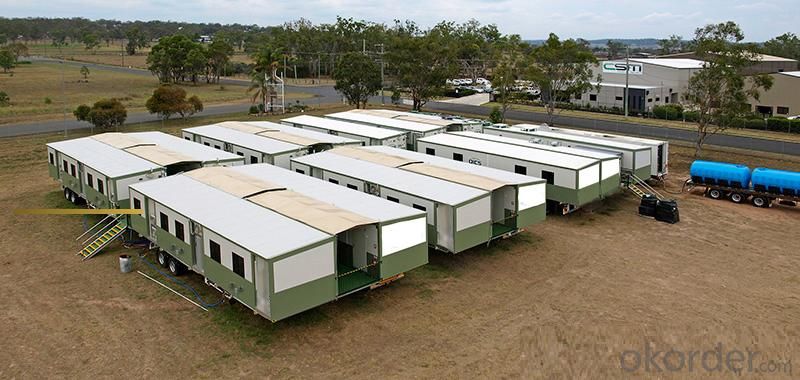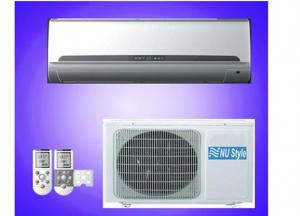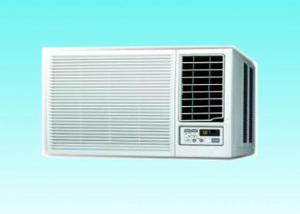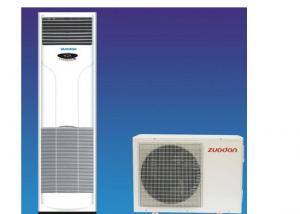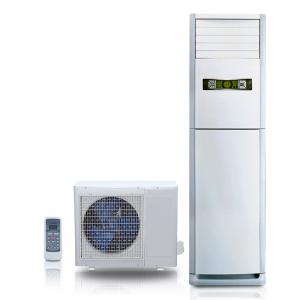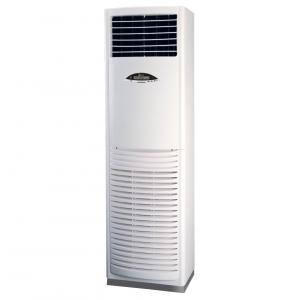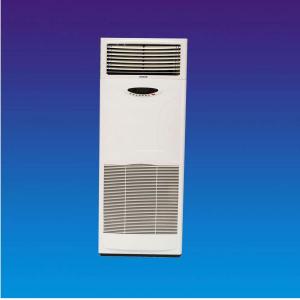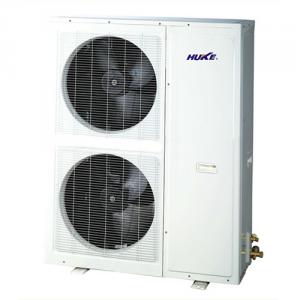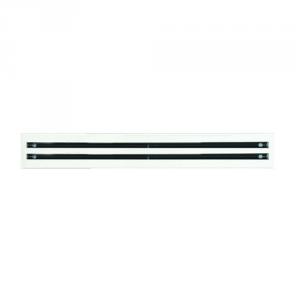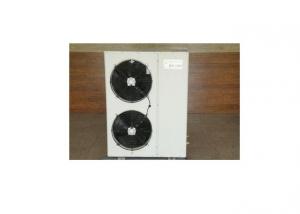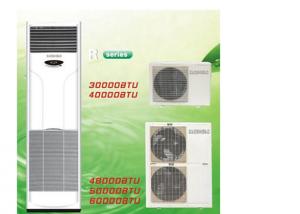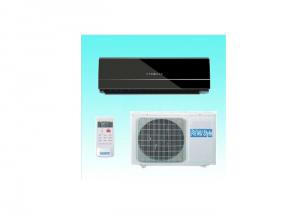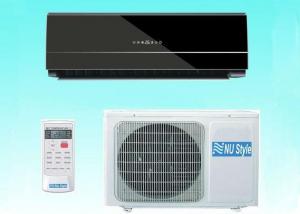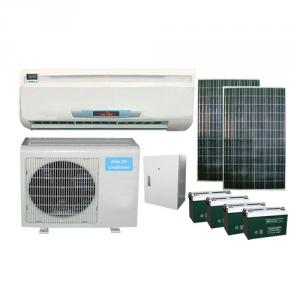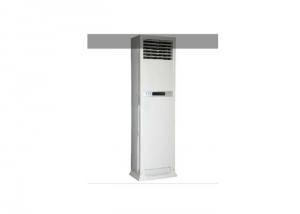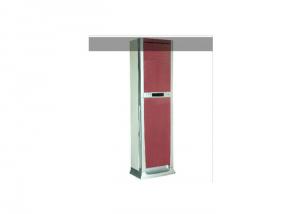Air Conditioner Monobloc without An Outdoor Unit
- Loading Port:
- Shekou
- Payment Terms:
- TT OR LC
- Min Order Qty:
- 80 set
- Supply Capability:
- 6000 set/month
OKorder Service Pledge
OKorder Financial Service
You Might Also Like
Monobloc Air Conditioner, A Plug and Play Unit | Cooling &Heating Capacity | Input Power (Cooling/Heating) | Current (Cooling/Heating) | Room Area Suggested (m2) | Body Dimensions (WxHxD) mm | Noise Level (SPL dB/A) | NW(KG) | Verified advantages | |
low-wall, or hi-wall mounted, or floor-standing | WZ-25 | 2500W (9000BTU) | 981/880 W | 4.27/3.83 A | 12 ~ 20 m2 | 1000*580*230 | Indoor 46, Outdoor 48 | 45 | the most silent |
| WZ-32 | 3200W (12000BTU) | 1287/1214 W | 5.6/5.28 A | 18 ~ 30 m2 | 1000*580*245 | Indoor 48, Outdoor 50 | 47 | the most powerful | |
WZ-28EC (Hi EER/COP) | 2800W (10000BTU) | 932/850 W | 4.05/3.7 A | 15 ~ 25 m2 | 1000*580*245 | Indoor 48, Outdoor 50 | 47 | the highest EER/COP | |
| specially hi-wall mounted | iCOOL | 2300W (8000BTU) | 904/790 W | 3.93/3.44 A | 10 ~ 15 m2 | 955*435*199 | Indoor 48, Outdoor 50 | 40 | the most mini size |
*In modular buildings markets, Zymbo's monobloc A/C has been taking major market shares in Europe and South Africa since 2007 , and also does well in Australia
*Italian design patented, modish style, high-standard with innovation,
*Without an outdoor unit in the outer wall, the aesthetics of the buildings is kept,
*Very easy installation (DIY feasible), NO need for pipework to be installed between indoor and outdoor units, NO additional refrigerant gas required, savings on installation time and cost,
*Free to be removed & re-installed,
* Seldom refrigerant leaks as a monobloc unit, no need to termly re-charge refrigerant like a split unit, savings on after-sales service,
*Silent db(A), as good as split systems,
* Multi applications: High-wall, Low-wall, or floor-console,
* High erergy efficiency, abundant cooling/heating output, as good as split systems.
*Fresh air exchange, Active Carbon & Catalytic filters,
*Suits polar climate -20o C (-4o F ) and tropical climate 52oC (125.6o F),
*On-board-controller, and optional wall control pad (wired or wireless), Modbus hotel automation, or BMS,
*Internal frame structure: full EPP insteady of traditional Poly foam, much better sound/vibration absorption, moistureproof and uselife,
*The major applications: modular rooms, container houses, camps, mobile homes, hotels, apartments, offices, historical buildings, and all others that the exterior wall doesn't accept an outdoor unit.
*Certifications such as TUV CE, CB, ETL, etc for worldwide markets.
*Most popular sales in the industry worldwide, high quality is approved.
*Customized Improvement is welcome always.
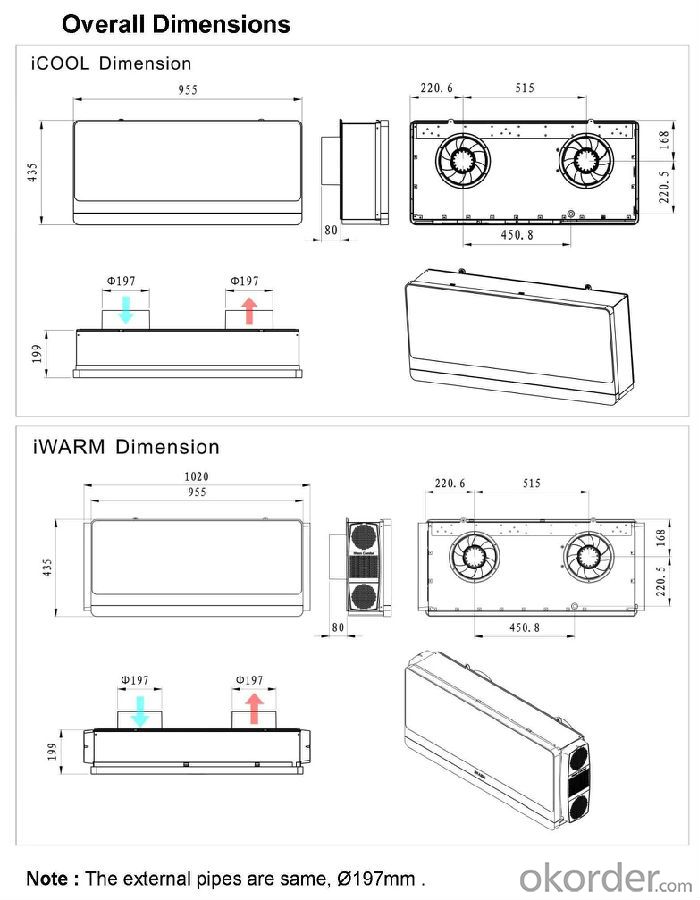
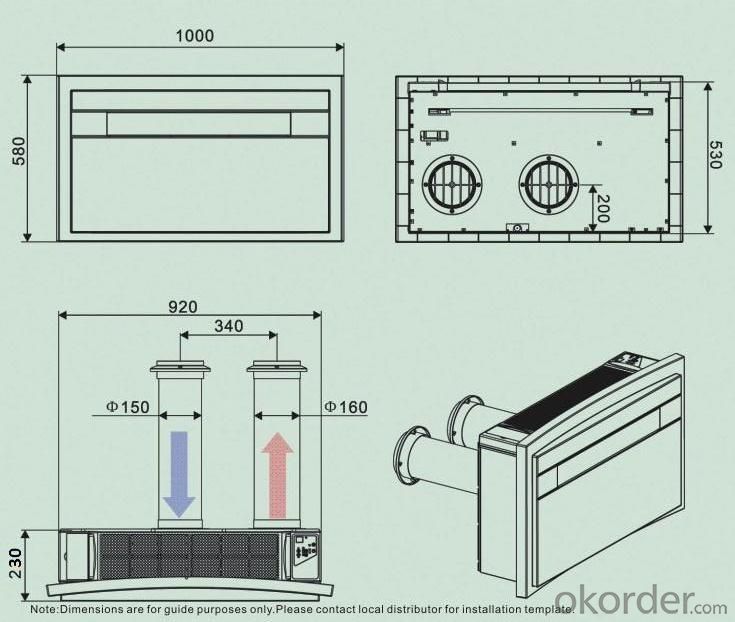
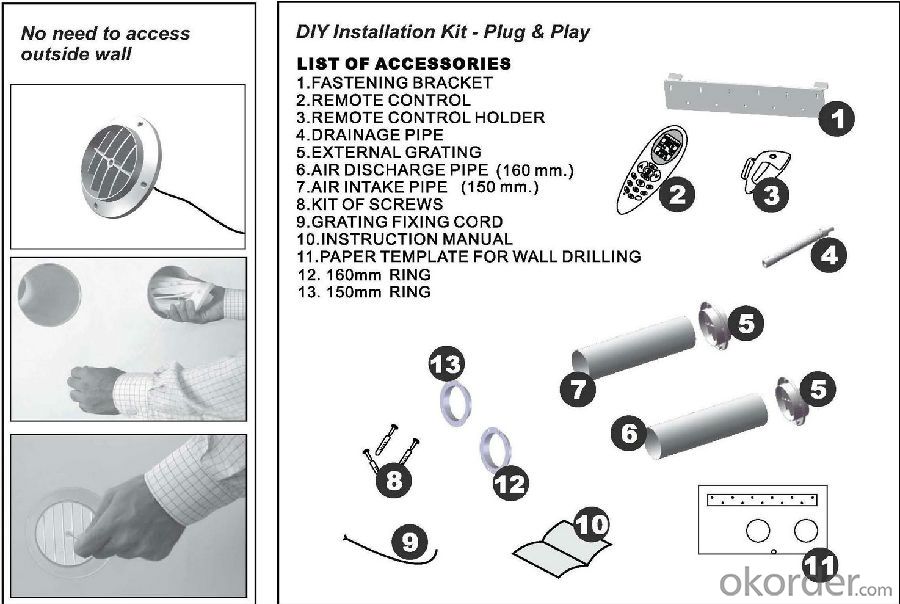
- Q: Is the household air conditioner, I here are generally only use in the summer, winter will not use?
- Design service life for twenty years! Because of the environment is different, generally in 10 years or so.
- Q: Within the household air conditioning machine evaporator tube temperature sensors have what effect?
- Self heating type: protection against the cold wind in the condition of air conditioning heating, in order to prevent the indoor machine out of the cold wind blowing, after startup CPU begin to detect the temperature of the evaporator, when temperature is lower than 22 degrees Celsius, indoor fan motor doesn't work; When the temperature is greater than or equal to 22 degrees Celsius, indoor fan blow down a peg or two, when the tube temperature is greater than or equal to 40 degrees Celsius or compressor running after 2 min, indoor fan according to the set speed running. Heating run against the overload protection: when the CPU continuously 4 s detected tube evaporator temperature greater than or equal to 56 degrees Celsius, outdoor fan stop, when they tested the tube temperature less than or equal to 52 degrees Celsius, the indoor fan.
- Q: What is the difference between ordinary air conditioning and central air conditioning
- Household central air conditioner, or household central air conditioning, no type adjustable central air-conditioning) is produced by an outdoor cold (hot) source and then to the various rooms and cooling air conditioning (hot), it is to belong to a (small) commercial air conditioning. Household central air conditioning is divided into two wind system and water system. The wind system of outdoor, indoor host, supply air pipe and each room and regulating valves, etc; Water system consists of separate-bodied air-conditioners, water pipes, circulating pump, and at the end of the indoor coil (wind machine, surface mounted, etc.). The characteristics of the household central air conditioning is: 1 under the condition of the whole family is in comfort, avoid direct blowing cold and other fission machine room cold hot uneven body unwell phenomenon; 2 good decorative, cooperate to decorate no pipe leakage; 3 simple operation, automatic operation, no maintenance; 4 according to the orientation, function of each room to increase or decrease supply air (hot); 5 can add fresh air and add wet, keep indoor air fresh and health. The limitations of household central air conditioning is: 1 decorate on, design and installation to combine with decorate can achieve good comfort and decorative effect; 2 power requirement: electric load is bigger. If the old housing to consider circuit load enough.
- Q: 100 square with a few of the air conditioning
- You can refer to the following data, two 3 horse is the ideal air conditioning. 1, 1 piece of air conditioning for 12 square metre of space. 2, 1.5 air conditioning for 18 square metre of space. 3, 2 air conditioning for 28 square metre of space. 4, 2.5 air conditioning for 40 square metre of space. 5, 3 air conditioner for about 50 square meters of space. 6, 5 horses air-conditioner is suitable for the space of about 70 square meters. 1. Due to the heating effect is lower than the refrigeration effect of air conditioning applicable area is less than the applicable area of summer (winter), buy air conditioning should be the heating indicators shall prevail. So, the choose and buy air conditioning according to the applicable area in winter. 2. As a result of the use of air conditioning room situation and regional differences in climate, and the plan of extreme weather, buy air conditioning should not buy small. So, should according to applicable area in winter, and applicable area of the lower limit of winter to buy air conditioning.
- Q: What is the life general air conditioning
- Can repair, but you is bad now, no other bad part did not change, after all, has been used for 10 years, there must be some degree of aging. So after repair, may over time other components broke down again. So often we see things with the not bad for a long time, but as long as the bad one will often broken, after the machine started to fatigue.
- Q: What is the working principle of household air conditioner?
- Household air conditioner has two parts: the commonly and the house. The indoor machine by motor, fan, condenser, mainly used for heat dissipation (in winter) or air conditioning (summer). Core: air-conditioners, including compressor, condenser, capillary and electronic valve, etc. Compressor is to compress refrigerant (freon) into high temperature and high pressure gas, through the condenser cooling, is what you said to exhaust, after capillary into normal pressure liquid at low temperature. Outside and inside machine exhaust heat just the opposite, and winter and summer switch is on electronic valve to control the direction of them.
- Q: How to choose and buy online ask yi tuo 2 air conditioning, is copying other people's answer, at last, it is not family air-condition is the central air conditioning, fission air conditioning? The general set of machine? Two sets of? The central air conditioning? Is not local tyrants.
- Yituo two, is an outside machine, two inside the machine, can use a total of two rooms. Fission, outside is a machine, a machine. Each has both advantages and disadvantages
- Q: Household central air conditioner and what is the difference between ordinary household air conditioning?
- On the installation price, household central air conditioning than ordinary household air conditioner does not have obvious advantages, but in the use process, household central air conditioning has its advantages
- Q: How long does it take to add freon home air conditioning?
- Air conditioning, in the process of the operation and use of CFCS once even less or leak air conditioning other components can be the normal operation of air conditioning can't play the role of system of cooling and warming. Said the air-condition freon how long to add this one problem at a time, small make up actually trying to say is, as long as your air conditioning sealing good enough, no matter how long your air conditioning is don't need to add freon, and the effect of air conditioning refrigeration and heating can also is very good. If must to add freon air conditioning is when the air conditioner freon is insufficient or leak will add freon for air conditioning. Users in to add freon air conditioning don't blindly freon need time to add, this is unscientific. General fluoridated steps: for air conditioning in the freon first to open the bottle containing freon, freon out slowly, in the fluorine bottle after quick add fluoride fluorine tube connected to the air conditioning mouth, to tighten it. Fluorine of freon will flow into the air conditioning. In the condition of air conditioning running add fluoride: 1, open the air conditioning, make its run, add fluoride in the air conditioning refrigeration condition. 2, find air conditioning to add fluoride mouth, air-conditioning plus fluoride mouth is generally on the tubes of air conditioning, make it in a state of low pressure. 3, put the air conditioning nut, connect the fluorine tube, at the same time open the fluorine bottle, the fluorine of freon will enter into the air. 4, in the condition of air conditioning refrigeration, as long as fill it up with 4 mpa, namely four pressure is ok.
- Q: Can an air conditioner cool multiple rooms?
- Yes, an air conditioner can cool multiple rooms by using a central air conditioning system, ductless mini-split systems, or utilizing multiple units strategically placed throughout the different rooms.
Send your message to us
Air Conditioner Monobloc without An Outdoor Unit
- Loading Port:
- Shekou
- Payment Terms:
- TT OR LC
- Min Order Qty:
- 80 set
- Supply Capability:
- 6000 set/month
OKorder Service Pledge
OKorder Financial Service
Similar products
Hot products
Hot Searches
Related keywords
